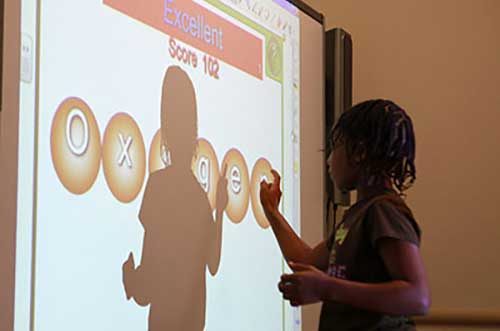
The University of Michigan conducted a survey in 2014 to determine how teachers felt about games in the classroom, and found that:
- 90% of teachers believe games motivate students
- 89% feel games help students reinforce or master previously taught content
- 59% see games as effective in teaching students new content
For education marketers to effectively reach educators with compelling messages, it’s key to understand how these beliefs influence buying behaviors.
Although there is growing evidence that using digital games in classrooms helps students develop certain attributes and skills, the evidence of its efficacy is more anecdotal than em pirical. In his 2014 book, Computer Games for Learning: An Evidence-Based Approach, educational psychologist Richard Mayer, Ph.D. wrote: “When you look at the research reviews and meta-analyses that have been done, the evidence is not all that convincing yet that digital games are going to revolutionize education.”
pirical. In his 2014 book, Computer Games for Learning: An Evidence-Based Approach, educational psychologist Richard Mayer, Ph.D. wrote: “When you look at the research reviews and meta-analyses that have been done, the evidence is not all that convincing yet that digital games are going to revolutionize education.”
Even though there are opponents to game-based learning, there are multiple small studies such as the 2013 research by New York University and City University of New York that found that math video games enhance middle school students’ motivation to learn.
The researchers found that when students played the game with one another, they adopted a mastery mindset that is highly conducive to learning. In this mindset, because students are focused on developing their abilities and gaining knowledge, they regarded mistakes and difficulties as being part of the learning process. On the other hand, if students developed a performance goal mindset, their fear of looking less intelligent might make them avoid opportunities to add to their knowledge of the material. In either event, students’ interest and enjoyment in playing the game increased when they played with another student.
Game-based learning has many prominent advocates who believe that digital games “have the potential to bring about meaningful learning experiences for today’s students. Leading game expert Jane McGonigal asserts that using video games turns students into expert collaborators and problem solvers.
Although gold-standard research into the efficacy of game-based learning is limited, it is relatively easy for education marketers to showcase these results and to support their customers in adding to the body of information around small implementations.
Microsoft recently purchased MinecraftEDU and developed a new version of the game for schools, Minecraft: Education Edition. This is an open world game that helps promote creativity, collaboration, and problem solving in an immersive environment. And it’s free for teachers, students, and schools.
It is only a matter of time before an enterprising researcher designs an empirical study to demonstrate Minecraft’s abilities to support and develop mastery of 21st century skills. In the meantime, Minecraft is being used in hundreds of classrooms to engage students and stimulate their interest in directing their own learning.
Other educational game developers can also leverage the storyline of student engagement in their marketing by showcasing their own efficacy studies and evangelist customers. Case studies, focused results, and district referrals can lead the way to additional district pilots, particularly if marketers can demonstrate specific learning outcomes through their own empirical research. Even though the topic of game-based learning is not new, it is good to remember that those educators who are using game-based learning are early adopters. Game-based learning for mainstream educational use is still in its early days, and there is plenty of market opportunity for education game developers to stake out their areas of expertise.
This is the second post in a two-part series about the state of gaming in K-12 classrooms. Right now I’m at the Serious Play Conference at the University of North Carolina at Chapel Hill where I’m presenting a session titled “These Bananas Aren’t Going to Sell Themselves.” I’ll be sharing a game plan to put educational marketers on the path to success. Interest in education gaming is high, so this is likely a topic we will revisit on a regular basis throughout the upcoming school year. Soon, we’ll share the results of another in our Pulse series of educator surveys to expand on educator perceptions and use of games in the classroom to further inform 2016-17 marketing and sales plans. If you can’t make the conference, email me at charlene@cblohm.com to get the deck or just chat more about options that might be right for you.


